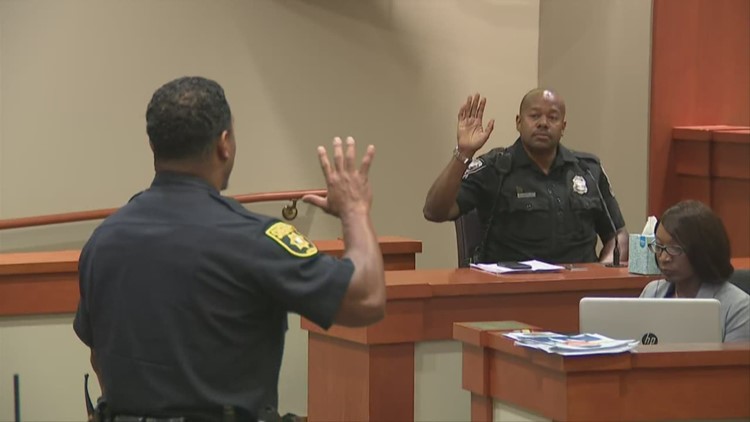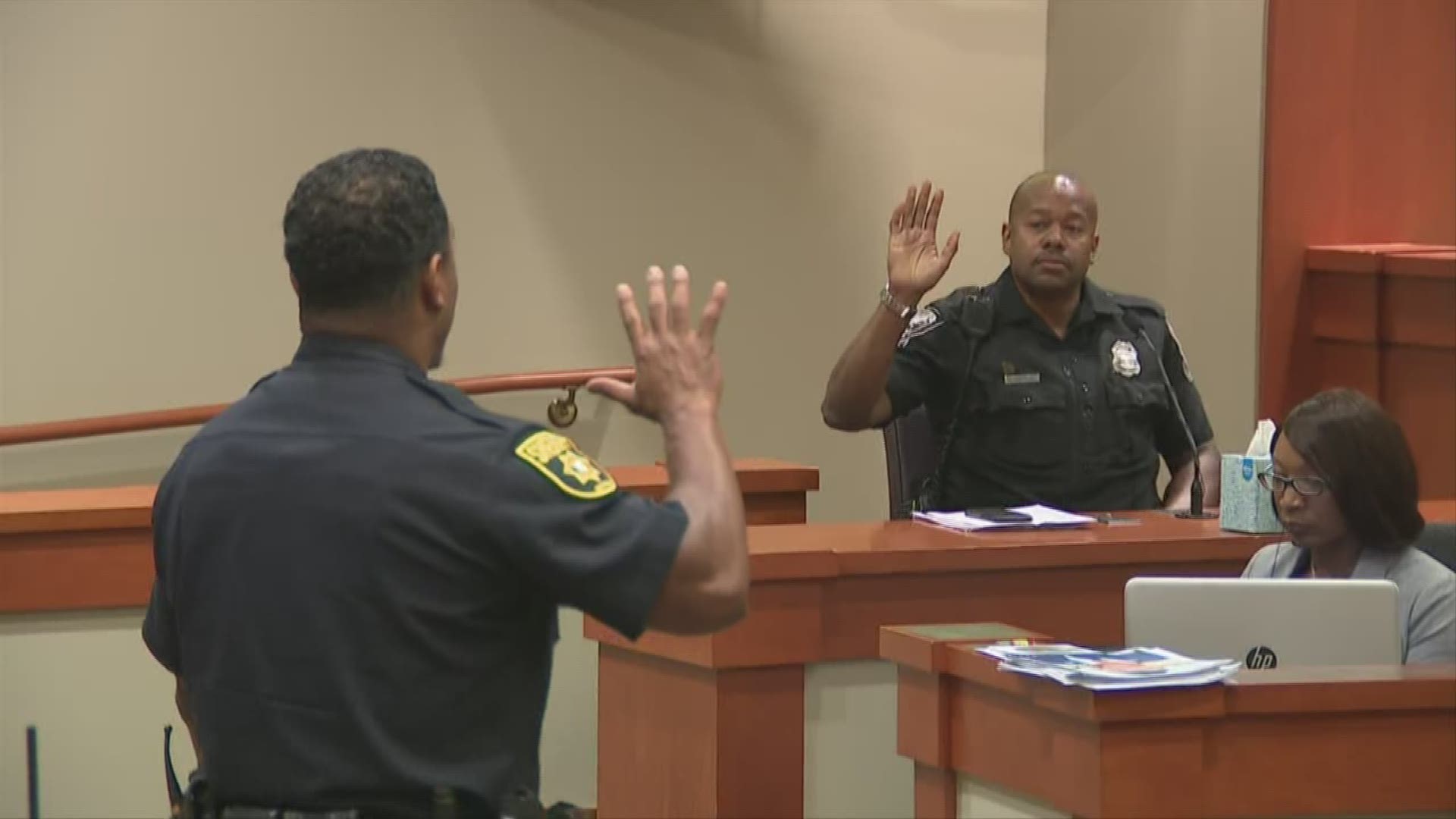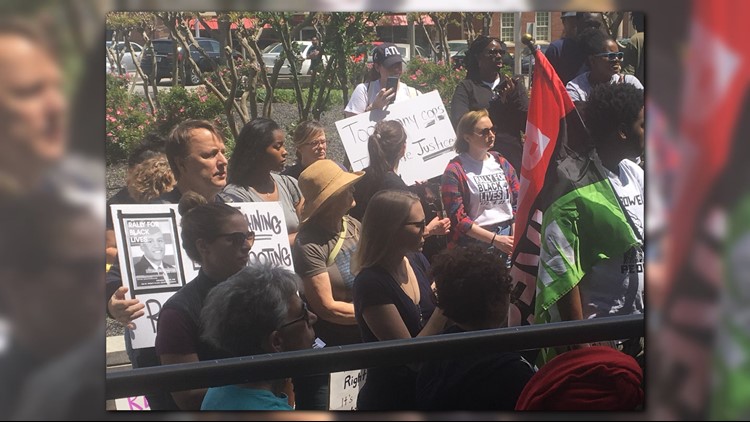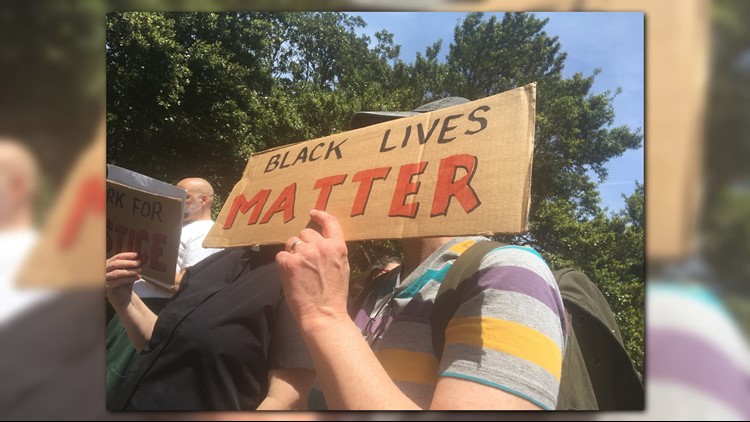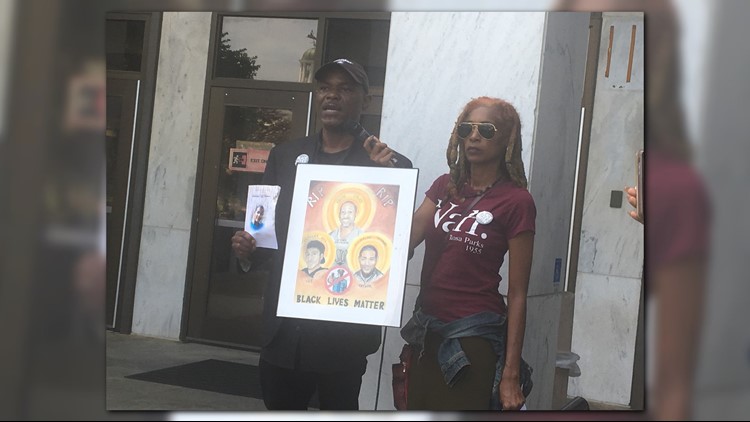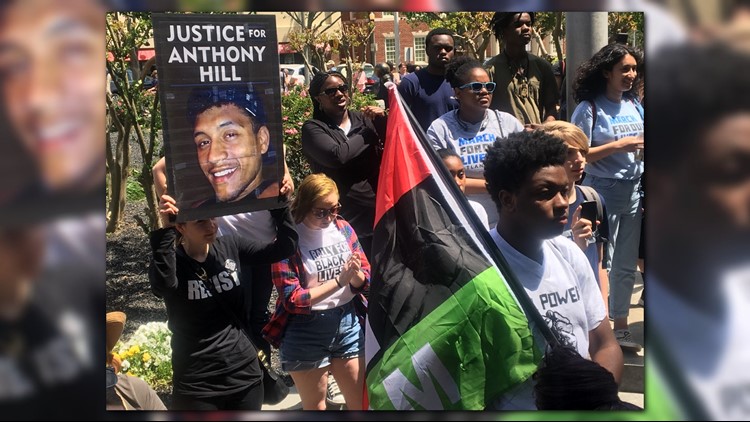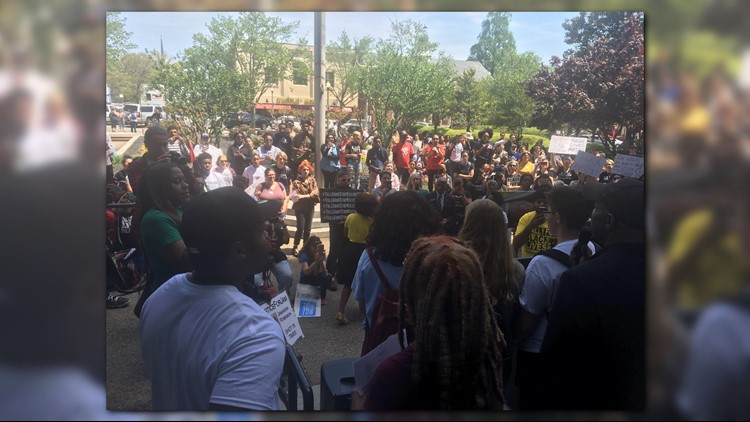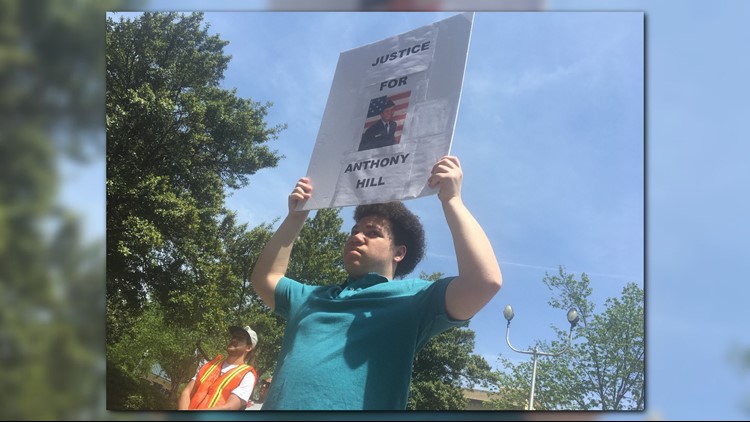DECATUR, Ga. — DeKalb County Police Officer L. Anderson testified he arrived at The Heights at Chamblee Apartments on Mar. 9, 2015 and saw fellow officer Robert Olsen near Hill’s body with bloody gloves.
“He told me he (Hill) ran towards him and was ‘pounding on him,” testified Officer Anderson.
Officer Anderson said he was looking for a weapon Hill may have been holding but saw nothing.
Olsen is facing six charges, including felony murder, for shooting Anthony Hill in his apartment complex parking lot on March 9, 2015. Hill’s family says he was in the midst of a mental breakdown. Olsen was responding to a 911 call about a disturbed person.
Olsen’s lawyers argue the officer knew nothing about Hill’s bipolar diagnosis or mental health status when he encountered him running towards him in the parking lot.
“I didn’t see any type of object around his body,” Anderson testified. “(Olsen) had a like a look. A look that it was somebody had done something really wrong. Like the … excuse my language… the ‘oh ****’ look.”
Anderson went on to say he has handled 313 calls about people with possible mental illness in his 16 years as an officer. He testified he has never shot a person or fired his weapon during one of those calls.
Upon cross examination by the defense, Officer Anderson said Olsen looked shocked and the scene was chaotic.

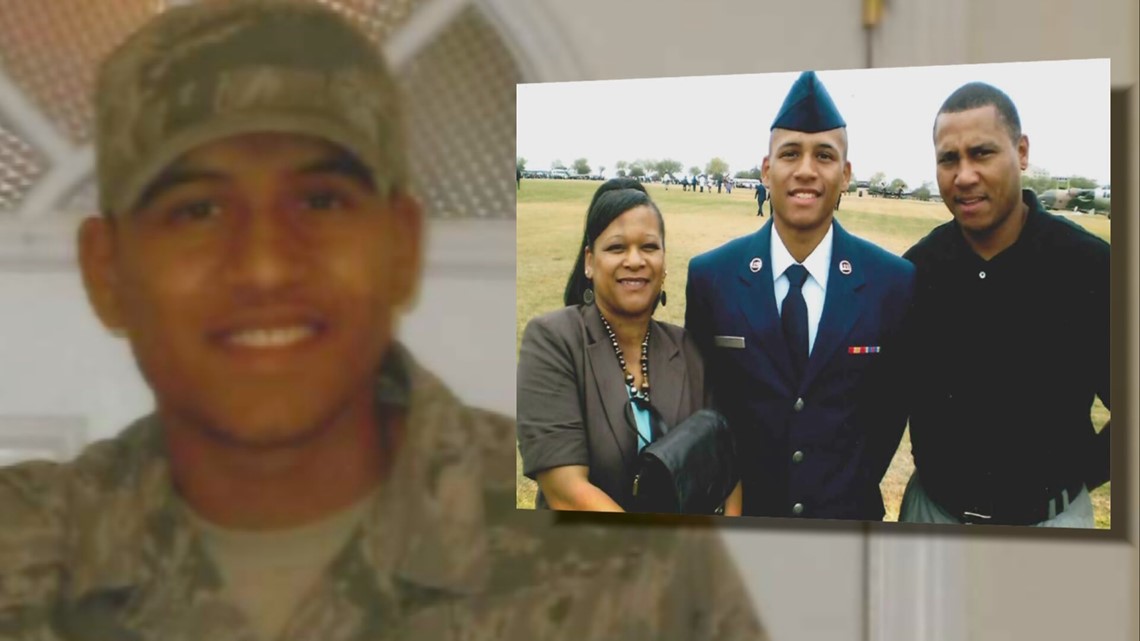
DeKalb Police Use of Force policy takes center stage
The majority of testimony for the day was spent questioning Sgt. J.K. Walker with the DeKalb County Police Department. Walker testified that the department has a practice called a "continuum use of force."
While testifying about the DeKalb County Police Department’s use of force policy, Walker explained how they train officers to approach situations with confrontational subjects.
“A use of force continuum means, what are the scales in regards to your use of force," Walker said.
Essentially, the Use of Force Continuum Practice is a guideline for escalation of force, in ideal conditions.
“Again this is predicated upon the subject,” testified Walker. “Is the subject complying or obeying commands? You can skip certain things based on what that subject is doing.”
DeKalb County Police Use of Force Continuum Practice
- Police presence/Arrival on scene
- Officer’s voice and verbal commands
- Soft hands or hard hands (redirect or moving someone away with their hands vs. hitting someone)
- Non-lethal tools: baton, taser, spray
- Service weapon
“The weapon is the last in that continuum,” Walker told the jury. “You can escalate or deescalate based on what the subject does.”
Walker also testified about the certifications and training Olsen received.
Olsen’s training included:
- Taser
- Baton
- Use of deadly force
- Defensive tactics
- Dealing with people with mental illness
- Dealing with people with excited delirium

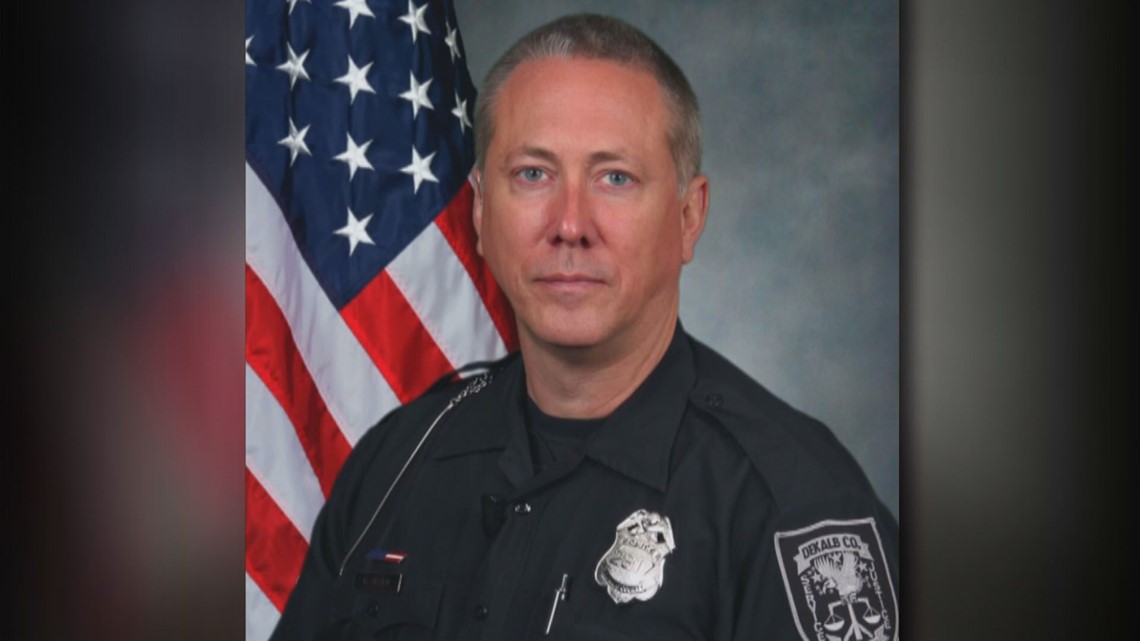
Olsen received more than the required number of hours of training for officers.
When questioning Sgt. Walker about the training given to police officers, Asst. District Attorney Pete Johnson asked, “Do they teach in that class you should shoot mental health patients?”
That was met with an immediate objection from the defense, which was sustained.
GBI agent’s interview with Olsen after shooting
The first witness of the day was Georgia Bureau of Investigation Special Agent Clint Thomas. He did the interview with Olsen in the days after the shooting.
On Tuesday, before recessing for the day, the courtroom heard the entirety of that interview. Prosecutors pointed out that Olsen never once said he was scared of Anthony Hill.
PHOTOS: Rally held for Anthony Hill
Upon cross examination, Olsen’s lawyers said it was obvious the officer was scared and that’s why the GBI agent didn’t feel it necessary to ask the question.
“While Olsen doesn’t relay to you ‘I’m afraid,’ he does relay 'I’m looking at this guy.' He’s muscular. Strong. Possibly under influence of drugs,” said defense attorney Amanda Clark Palmer.
Tensions running high in courthouse
As with any trial, emotions run high on both sides of the aisle.
Wednesday morning during a break in testimony, a woman yelled at Olsen in the hallway to “rot in hell.” Olsen had no response and sources say the woman will not be allowed back in the courtroom. The jury did not witness this exchange.
When the trial resumed, before the jury was allowed back in the courtroom, Judge LaTisha Dear Jackson reminded the courtroom they needed to keep their emotions in check and they could be ruled in contempt of court if they could not conduct themselves accordingly.
MORE FROM THE TRIAL


